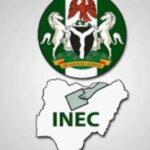Democracy Day in Nigeria: A call to reflection and renewal
Nigeria’s governance has undergone significant changes since gaining independence in 1960. Nigeria started with a parliamentary system, modeled after the British system, with a ceremonial President and a Prime Minister as head of government. Today, Nigeria operates a presidential system, where the president serves as both head of state and government.
Initially, Nigeria had a more decentralised system, with regions having significant autonomy. Over time, the country has moved towards a more centralised system, with the Federal Government holding more power. Nigeria experienced prolonged periods of military rule, which disrupted democratic governance. Since 1999, Nigeria has maintained a democratic system, with some progress in electoral processes and transfer of power. However, this is not without challenges.
Governance in Nigeria still faces significant challenges, including corruption, inefficiency, and insecurity. The country’s diverse ethnic and regional groups continue to pose challenges to national unity and stability. Overall, Nigeria’s governance has evolved significantly since independence, with changes in its system of government, constitutional framework, and democratic experience. However, the country still grapples with various challenges that impact its governance and development.
Nigeria’s governance has undergone significant changes since gaining independence in 1960. Nigeria started with a parliamentary system, modeled after the British system, with a ceremonial President and a Prime Minister as head of government. Today, Nigeria operates a presidential system, where the president serves as both head of state and government.
Initially, Nigeria had a more decentralised system, with regions having significant autonomy. Over time, the country has moved towards a more centralised system, with the Federal Government holding more power. Nigeria experienced prolonged periods of military rule, which disrupted democratic governance. Since 1999, Nigeria has maintained a democratic system, with some progress in electoral processes and transfer of power. However, this is not without challenges.
Governance in Nigeria still faces significant challenges, including corruption, inefficiency, and insecurity. The country’s diverse ethnic and regional groups continue to pose challenges to national unity and stability. Overall, Nigeria’s governance has evolved significantly since independence, with changes in its system of government, constitutional framework, and democratic experience. However, the country still grapples with various challenges that impact its governance and development.
As Nigeria commemorates Democracy Day, in 42 days time, the nation is compelled to engage in a period of introspection, acknowledging the strides made while confronting the myriad challenges that impede its development.
Since the inception of democracy in 1999, the pace of infrastructural growth and development has been disappointingly sluggish. The scourge of corruption and associated societal ills has taken deep root, exacerbating unemployment, tarnishing Nigeria’s foreign image, and undermining the progress Nigerians ardently yearn for.
The Corrosion of Corruption
Corruption has emerged as a formidable obstacle to Nigeria’s advancement, manifesting in various debilitating forms:
1. Mismanagement of resources
The diversion of public funds earmarked for development projects has become endemic, depriving the nation of essential infrastructure and services. This has led to inadequate infrastructure (roads, bridges, power supply), insufficient access to quality healthcare and education and limited economic opportunities and high unemployment rates.
2. Inefficient governance
Institutions and a lack of accountability have created an environment conducive to corruption, further entrenching systemic inefficiencies. This has resulted in poor policy implementation and ineffective governance, lack of transparency and accountability in public office and weakened institutions and rule of law.
3. Social injustice
Unequal access to opportunities and resources has fueled social disparities, eroding the fabric of society and undermining the principles of fairness and justice. This has led to increased poverty and income inequality, limited access to education and healthcare for marginalized groups, social unrest and conflict.
Threats to Nigeria’s betterment
These vices pose significant threats to Nigeria’s development and progress in diverse ways:
1. Stunted economic growth
Corruption deters investment, hinders economic development, and limits the nation’s potential for sustainable growth. This has resulted in low foreign investment and capital flight, limited economic diversification and dependence on oil and high unemployment rates and poverty.
2. Social unrest
Inequality and injustice fuel dissatisfaction and unrest, threatening the stability and cohesion of society. This has led to increased protests and civil unrest, social media activism and online mobilitation, growing distrust and disillusionment with government
3. Eroding Trust
Corruption undermines faith in institutions and leadership, compromising the legitimacy of governance and the rule of law. This has resulted in decreased trust in government and institutions, increased cynicism and apathy among citizens a d weakened social contract and legitimacy of governance
A call to action
To move forward, Nigeria must prioritise the following imperatives:
1. Strengthen institutions
Enhance transparency, accountability, and good governance by fortifying institutions and promoting a culture of integrity. This can be achieved through strengthening anti-corruption agencies and institutions, promoting transparency and accountability in governance and enhancing whistleblower protection and investigative journalism.
2. Promote integrity
Encourage ethical leadership and public service, rewarding merit and punishing corruption. This can be achieved through promoting a culture of integrity and ethics in public service, rewarding merit and punishing corruption and encouraging whistleblowing and reporting of corrupt practices.
3. Foster economic growth
Invest in infrastructure, education, and innovation, creating opportunities for sustainable economic development and growth. This can be achieved through investing in infrastructure (roads, bridges, power supply), promoting education and skills development and encouraging innovation and entrepreneurship.
Collective responsibility
Nigerians must demand better governance, accountability, and transparency. By working together, we can:
1. Build a stronger nation prioritise development, justice, and equality, ensuring that the benefits of democracy are equitably distributed. This requires promoting inclusive and equitable development, ensuring access to quality education and healthcare and protecting human rights and promoting social justice.
2. Restore faith. Rebuild trust in institutions and leadership, promoting a culture of transparency and accountability. This requires promoting transparency and accountability in governance, encouraging citizen participation and engagement and fostering a culture of integrity and ethics
3. Unlock potential
Harness Nigeria’s vast human and natural resources for sustainable growth, unlocking the nation’s potential for prosperity and progress. This requires investing in human capital and skills development promoting innovation and entrepreneurship and encouraging private sector.
pajezzyy@gmail.com is a Guest Columnist






